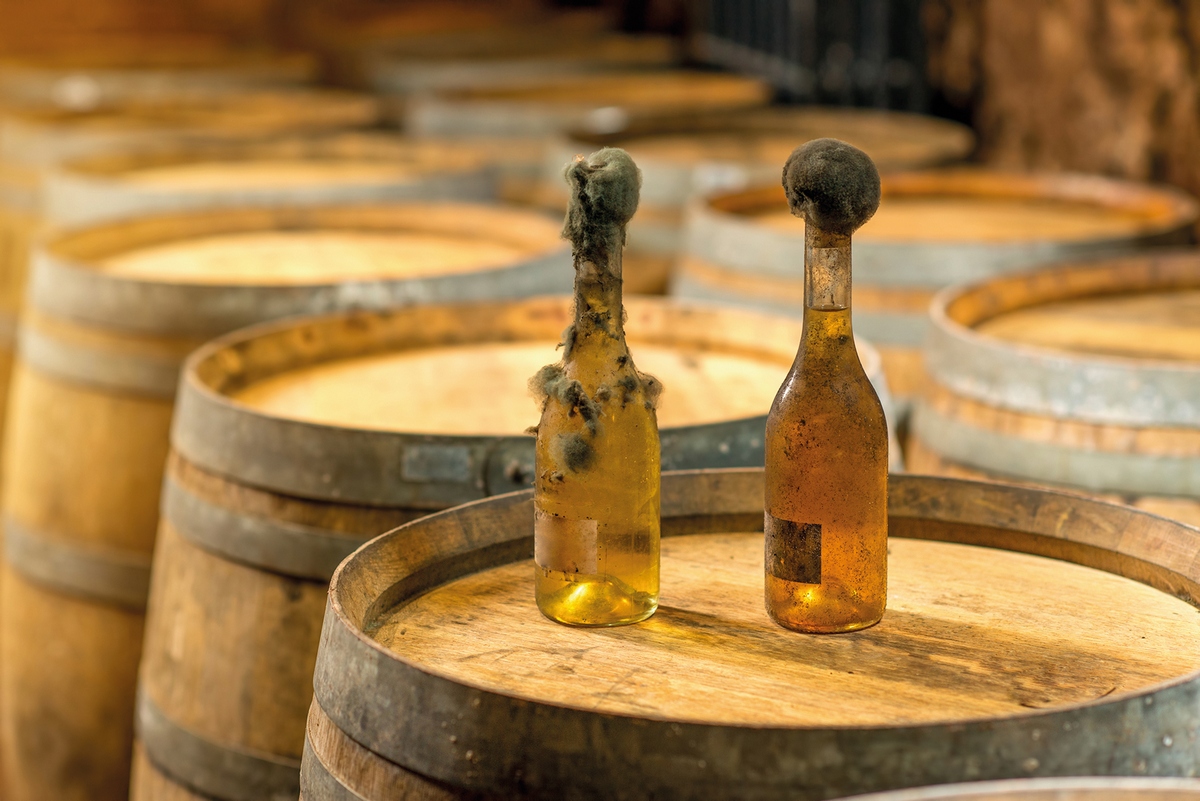In a beer-drinking country, a wine from Tokaj took all the fame

Volcanic soil at the foothills of the Carpathian Mountains stretches in far northeastern Hungary and keeps the secret of the first world’s official wine region. Hungarian king Karoly, known as Charles I of Hungary, declared the medieval town of Tokaj and its surroundings a wine region, 120 years before the famous Bordeaux in France.
Hungary, more a beer-drinking country, suddenly become famous for sweet and controversial wine named Tokaji Aszú, after the town of Tokaj and the Hungarian word “aszu”, which means “dry”.
In 2022, the region with 28 villages and more than 11 thousand hectares of vineyards has been declared a World Heritage Site by UNESCO. A smaller part of the historical wine region now belongs to Slovakia.
The story about Tokaji wine would never be completed if Balkan wasn’t mentioned and involved. Although this Hungarian wine is recognized as the oldest sweet (dessert) wine in the World, this is just because there is no evidence of the same wine-producing technology adopted from the Balkan peninsula, where this method was practised first and then spread to the north at the Tokaji region. However, this is only one of many different legends about the beginning of Tokaji Aszu wine. The most acceptable story came from the XVII century when Hungarian nobleman George I Rakoczi, Prince of Transylvania, was forced to fight against the Ottoman invasion from the Balkan. His wife ordered their vineyard manager to postpone the harvest due to invasion, only to find grapes in a state of extreme dryness.
Tokaji wine is the world’s oldest botrytised wine, which brought fame to Hungary despite it having never been considered a wine country
The fame of Tokaji wine comes from a very strange plague that usually kills the grapes, but in this case, it triggers the most interesting grape maturation that gives unique sweetness and taste. Noble rot (Botrytis Cinerea) is a grey fungus that affects grapes but if it is picked at the right time of infection, especially during dry weather conditions, the results turn out to be the finest dessert wine.

Higher latitude and cold and wet climate are not ideal for wine-producing, but what once was the grape plague here in Tokaj became an advantage. Moist in the air favours the fungus which could null the year’s production in normal circumstances. But, here in Tokaj, wine-makers, pick the grapes, and berries by berries, when it is matured and dehydrated enough to keep their sugar level. Years and years after, it lay down in dark and wet underground cellars, where became a myrrh-like juice which then used for making wine.
Tokaji wine is the world’s oldest botrytised wine, which brought fame to Hungary despite it having never been considered a wine country.
Years and years after, it lay down in dark and wet underground cellars, where became a myrrh-like juice which then used for making wine
Sommeliers would praise the flavours of “Noble rot” wine, like Tokaj. Botrytis adds many different flavours and sometimes it is like honey, beeswax, or ginger, but always it is sweeter than regular wine. Also, it contains phenylacetaldehyde, which gives a special aroma to it and commonly is found in milk chocolate.
Tokaji wine could be made from many grape varieties, but the most popular in modern days is Furmint, which is believed to be the flagship of Hungary. Furmint could be found all over Hungary, but it is considered one of the authentically Tokaji varieties which brings extra dry wine, less sweet, but still good as Aszu.
The history of Tokaji wine has a huge black spot during the Soviet era, despite its former fame. The wine was a symbol of aristocracy and as such was ignored, while production was in hands of state-owned companies. The quality of produced wine was not the focus of the Soviet henchmen who manage it. While production was exported exclusively to the Soviet Union and countries behind the Iron curtain, Western World has never got a chance to try Tokaji. Only after the fall of the communist regime, and vineyards have been privatized did Tokaji wine get a well-deserved place.